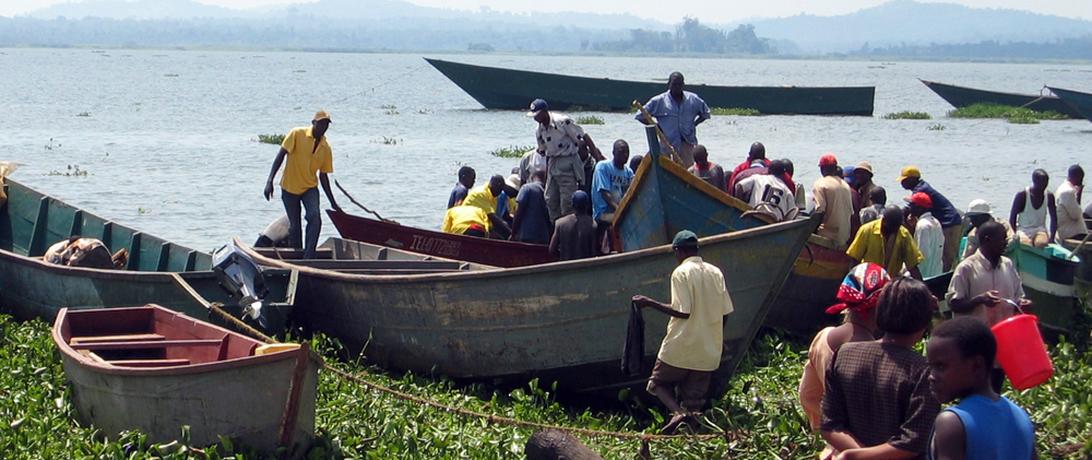Glaser’s project, “The Potential for Aquaculture in Lake Victoria and Implications for Wild Fisheries and Fish Commodity Markets”, was awarded $1,798,150 over four years. The project brings together researchers from the United States, Uganda, Tanzania, Kenya, and Canada, and Secure Fisheries will play a leading role in its implementation.
The research supported by this funding examines biological and economic tradeoffs that may result from growth in aquaculture around Lake Victoria. On one hand, aquaculture promises to fill the gap left by declining wild fisheries and to provide the world with a reliable, affordable form of fish. On the other hand, aquaculture can have negative consequences such as pollution, inequitable distribution of benefits, and ecological impacts on the wild fish harvested to produce fish feed. Aquaculture, particularly pond and cage culture of tilapia, is nascent but growing around Lake Victoria, and the future impacts of this growth are not well understood. Furthermore, this research will increase understanding of how emerging aquaculture markets in developing countries can be structured to promote sustainability and equitability.
